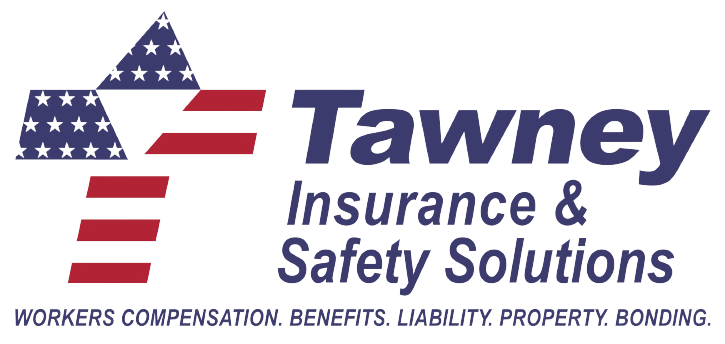Insurance Commissions and Fees: Why Transparency Matters in Risk Management
Let's talk about something that doesn't get discussed much in the insurance world: where your money actually goes when you pay those premiums. Most business owners focus on coverage and costs, but there's a whole financial picture happening behind the scenes that's worth understanding.
The Numbers Behind Your Insurance Investment
Here's something that might surprise you: for every million dollars you spend on property and casualty coverage, about $100,000 goes straight to your insurance agency. That number can swing anywhere from $80,000 to $150,000 depending on your specific situation, but let's stick with round numbers to keep things simple.
Now, here's where it gets interesting. Your actual agent – the person you've built a relationship with, who knows your business, who you call when things go sideways – they're getting a slice of that pie, but maybe not as big as you'd think.
Here's the typical breakdown:
First-year sales: Your agent pockets 40-50% of that agency commission
Renewal business: They get about 25% each year after that
The rest: Well, that 50-75% goes to keeping the lights on at the agency
So in our million-dollar example, your trusted advisor is making $40,000-$50,000 that first year, then $25,000 annually on renewals. The other $50,000-$75,000? That's funding everything else – the fancy office, the marketing campaigns, the corporate structure.
What You're Really Paying For (Besides Your Agent)
When you write that premium check, you're not just paying your agent for their time and expertise. You're also funding a whole operation you might never see or benefit from directly:
The agency's brand recognition and advertising
Corporate headquarters and administrative staff
Software systems and technology platforms
Regional offices and support teams
Profit margins for agency ownership
It's kind of like buying a car. You're paying for the vehicle, but also the dealership's overhead, their marketing budget, and their profit margin.
The Million-Dollar Question: What Are You Getting Back?
Look, good insurance agents absolutely deserve to be paid well. If your agent is the type who shows up at your job sites, trains your employees, helps you manage claims, and genuinely acts like part of your team, that's valuable stuff. Those folks are worth every penny.
But here's what we've noticed: about 99 out of 100 agents aren't doing all that extra work. They're great people, but they're primarily focused on selling policies and processing renewals.
Signs you've got one of the good ones:
They visit your facility or job sites regularly
They provide employee safety training
They help you navigate claims from start to finish
They proactively review your coverage and suggest improvements
They feel like part of your team, not just a vendor
Red flags that you might be overpaying:
You only hear from them at renewal time
Their advice feels generic and one-size-fits-all
They seem more interested in keeping you with your current carrier than finding the best deal
You're not sure what services you're getting beyond policy management
A Different Way to Think About Insurance Partnerships
Instead of paying commissions buried in premiums, employers are exploring consulting arrangements where they pay for expertise directly and shop the market independently.
This approach looks something like:
Pay your trusted advisor directly for their consulting services
Shop insurance independently without carrier loyalty getting in the way
Keep the savings that would normally go to agency overhead
Invest those dollars in risk management that directly benefits your business
It's not about cutting anyone out, it's about making sure your money works harder for your business.
Getting Smart About Your Insurance Dollars
Here's the thing: you can't make good decisions about something when you don't know what it actually costs. And honestly, most insurance agents haven't been great about sharing these details.
In the early days of building our business, we couldn't afford to be completely transparent about commissions because the numbers were so small. But we've learned that the best customers are educated customers. When you understand where every dollar goes, you can make better choices about your insurance program.
Questions worth asking your current agent:
How much of my premium goes to commissions?
What's the difference between first-year and renewal payouts?
What specific services does that commission cover?
Do you have any conflicts of interest with certain carriers?
Would you be open to a consulting fee arrangement instead?
Things to consider when evaluating your insurance relationship:
How often do they actually engage with your business?
Do they provide real risk management support?
Are they your advocate when claims happen?
Do they bring you market insights and options?
Are they transparent about how they get paid?
The Bottom Line
Every business deserves to know exactly where their insurance dollars are going. Understanding the commission structure helps you figure out if you're getting your money's worth.
We're not trying to beat up on insurance agents for making money. Everyone deserves to earn a living. But we do think businesses should understand the full picture so they can make informed decisions.
When you find an insurance professional who genuinely adds value through regular engagement, proactive risk management, and real partnership, their compensation reflects earned expertise. The problem comes when commission structures reward selling over serving.
Understanding these relationships gives you options. Maybe you keep everything exactly as it is because you're getting great value. Or maybe you realize there's a better way to structure things that saves money and improves service.
Either way, you'll be making decisions with your eyes wide open and that's always better for business.
Want to know where your insurance dollars are actually going? We can walk through your current setup in about 20 minutes and show you exactly how the money flows. No pressure, just transparency.
